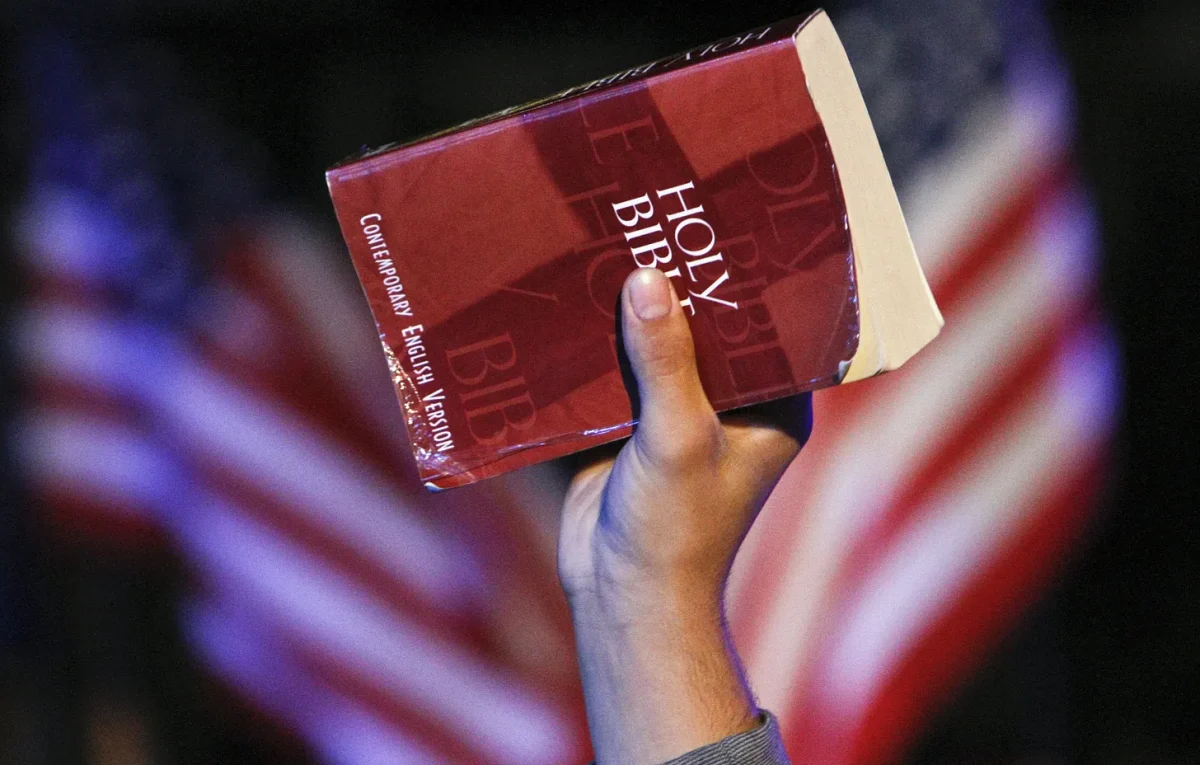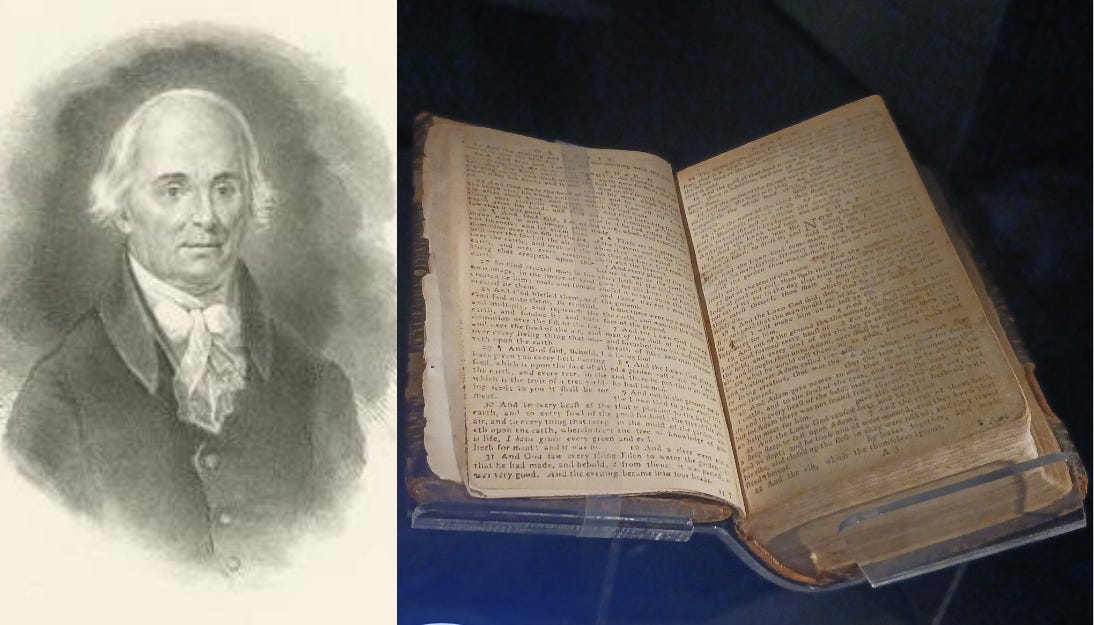
Two hundred and forty-four years ago, a book publisher unsuccessfully sought congressional recognition for an authorized American version of the Bible. Now, a U.S. congressman wants to bestow such status on that Bible, demonstrating how Christian Nationalists seek to rewrite history and pervert the Bible to transform the U.S. into a “Christian” nation.
As General George Washington led soldiers fighting the Revolutionary War, Philadelphia-based book publisher Robert Aitken started publishing copies of the Bible. After a few years of publishing magazines and political pamphlets, he started printing the New Testament in 1777. This was significant because the war meant no trade with Britain, which included cutting off the supply of Bibles. Prior to the war, royal regulations had prevented such publishing in the colonies.
As the war continued, Aitken expanded his work to publish the entire Bible, an expensive endeavor both in the preparation and in the actual printing. In 1781, he sought approval from the Congress of the Confederation — since this was pre-Constitution time in the U.S. — to be named an official printer of the Bible, appointed and authorized by Congress for such work. That position didn’t exist in the U.S. and never has since. But in light of how the king had controlled Bible printing, perhaps he expected the new nation would operate similarly to oversee and even regulate Bible translations and publishing.
“That in every well-regulated government in Christendom, the sacred books of the Old and New Testament, commonly called the Holy Bible, are printed and published under the authority of the sovereign powers, in order to prevent the fatal confusion that would arise and the alarming injuries the Christian faith might suffer from the spurious and erroneous editions of divine revelation,” he explained to Congress in a 1781 request.
Aitken added that he wanted to print the Bible for use in schools but didn’t want to get in trouble with Congress, so he requested they inspect his work and officially authorize his version. He likely also had economic motivations for getting an official stamp given the expense of the project, so he even printed the resolution in his Bible along with a short recommendation from the two congressional chaplains. He ended up producing about 10,000 copies of the Bible but later said he lost money on it — in large part since trade opened up after the war, which flooded the market with cheaper Bibles printed in Britain.

Left: Robert Aitken. Right: A 1782 Aitken Bible on display at the American Bible Society’s Faith and Liberty Discovery Center in Philadelphia, Pennsylvania. (Creative Commons)
The Congress of the Confederation politely ignored his request to make him an official Bible printer of the new nation or to formally authorize his edition. They did eventually pass a resolution in 1782 commending his work, though the focus seemed to be that it proved how the new nation was developing to the point that it even had someone printing Bibles. The resolution did not authorize the already-developed Bible project. Instead, the members of the Congress of the Confederation commended Aitken for his “pious and laudable undertaking” that was valuable “to the interest of religion as well as the progress of the arts in this country.” They then recommended his book, but stopped short of making it an authorized or official Bible in the sense that the British monarch did and that Aitken sought.
While Aitken failed to have Congress adopt his Bible and struggled with sales, some Christian Nationalist activists have in recent years attempted to resurrect the obscure edition of the Bible as part of their mission to recast the U.S. as a “Christian” nation. Republican U.S. Rep. Andy Ogles of Tennessee is now picking up the cause.
Ogles is a Trumpian politician who has spread lies about the 2020 election (and his own resume) and who wants to change the U.S. Constitution so Donald Trump can serve a third term. Yesterday (April 30), Ogles introduced a resolution to name Aitken’s Bible “a historical document of the United States Congress.” It not only builds on false historical claims but also demonstrates the need to push back against Christian Nationalist distortions of history. So this issue of A Public Witness opens up the book to consider the tale of Aitken’s Bible flop and how it’s repackaged today.
‘Fake History’
“Without the Bible, America would not exist,” Rep. Andy Ogles claimed yesterday as he announced his resolution about the Aitken Bible. “Our Founders clearly understood that America’s survival depends on the people’s strong belief in and practice of the Scriptures. … There’s no question that America needs to return to the Bible. Recognizing the Aitken Bible as an official historical document of the U.S. Congress is in our national interest.”
His resolution, which he also filed two years ago, would have Congress officially “recognize Robert Aitken’s Bible as a historical document of the United States Congress.” His resolution also suggests Congress approved of Aitken’s plan to print the Bible for use in schools while ignoring that the Congress of the Confederation rejected Aitken’s actual requests to be officially authorized.
It’s not surprising to see a far-right member of Congress taking up this cause. Christian Nationalist activists have been pushing it for years. Most notably, pseudo-historian David Barton has pushed false narratives about Aitken’s project, suggesting the Bible was printed after “a plan was advanced in Congress to print America’s first English-language Bible.” But the plan was simply that of an ambitious private printer.

The rest of this piece is only available to paid subscribers of the Word&Way newsletter A Public Witness. Subscribe today to read this essay and all previous issues and receive future ones in your inbox.






